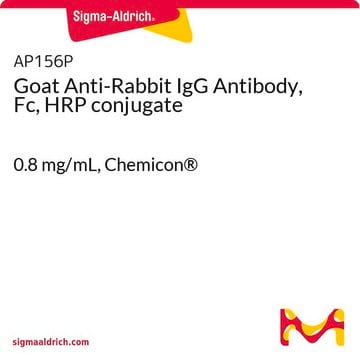24157
VOCOL® Capillary GC Column
L × I.D. 60 m × 0.32 mm, df 3.00 μm
Synonym(s):
F.S.CAP VOCOL® 60M 3.0UM .32MM
Sign Into View Organizational & Contract Pricing
All Photos(1)
About This Item
UNSPSC Code:
41115710
eCl@ss:
32119290
Recommended Products
material
fused silica
Quality Level
Agency
EPA TO-17,502.2,624,8015,8260,OLM04.2 VOA,524.2
NIOSH 1003
parameter
≤25-230 °C temperature (isothermal or programmed)
Beta value
27
df
3.00 μm
technique(s)
gas chromatography (GC): suitable
L × I.D.
60 m × 0.32 mm
application(s)
environmental
food and beverages
forensics and toxicology
industrial hygiene
column type
capillary intermediate polar
Looking for similar products? Visit Product Comparison Guide
General description
Application: This intermediate polarity column, designed for analyses of volatile organic compounds (VOCs), offers great retention and resolution of highly volatile compounds. Use this column in direct injection ports or coupled to purge and trap systems.
USP Code: None
Phase:
USP Code: None
Phase:
- Bonded
- Proprietary
- ≤0.32 mm I.D., <2 μm: Subambient to 250 °C (isothermal or programmed)
- ≤0.32 mm I.D., ≥2 μm: Subambient to 230 °C (isothermal or programmed)
- ≥0.53 mm I.D., <2 μm: Subambient to 250 °C (isothermal or programmed)
- ≥0.53 mm I.D., ≥2 μm: Subambient to 230 °C (isothermal or programmed)
Application
VOCOL® column (diphenyl dimethyl polysiloxane with crosslinking moieties) may be used for their relevancy to the purge-and-trap technique and GC/MS analysis of 34 volatile organics. It was also found suitable in being used for determination of volatile compounds by whole column cryotrapping.
Other Notes
We offer a variety of chromatography accessories including analytical syringes
Legal Information
VOCOL is a registered trademark of Merck KGaA, Darmstadt, Germany
Choose from one of the most recent versions:
Already Own This Product?
Find documentation for the products that you have recently purchased in the Document Library.
Adrian Fourcin
Logopedics, phoniatrics, vocology, 35(2), 74-80 (2010-06-12)
Voice is a dominant component of everyday speech in all languages. The possibility is examined that its use may have evolved so that its timing in connected speech is ideal from the point of view of information theory-with voicing taking
Eric Manders et al.
Logopedics, phoniatrics, vocology, 36(4), 139-144 (2011-03-10)
In this study we investigated how important significant others find it to be informed, supported, and trained by speech-language pathologists (SLPs) and to what extent they perceive their expectations and needs as to these aspects to be fulfilled. Furthermore SLPs
Teija Waaramaa et al.
Logopedics, phoniatrics, vocology, 40(4), 156-170 (2014-07-08)
Vocal emotions are expressed either by speech or singing. The difference is that in singing the pitch is predetermined while in speech it may vary freely. It was of interest to study whether there were voice quality differences between freely
Nathalie Henrich et al.
Logopedics, phoniatrics, vocology, 32(4), 171-177 (2007-11-09)
Are the characteristic timbre and loudness of Bulgarian women's singing related to tuning of resonances of the vocal tract? We studied an Australian female singer, who practises and teaches Bulgarian singing technique. Two different vocal qualities of this style were
Re: Bonilha HS, O'Shields M, Gerlach TT, Deliyski DD. Arytenoid adduction asymmetries in persons with and without voice disorders. Logoped Phoniatr Vocol. 2009 Aug 26:1-7. [E-pub ahead of print].
Gerhard Friedrich
Logopedics, phoniatrics, vocology, 35(3), 149-149 (2009-11-04)
Our team of scientists has experience in all areas of research including Life Science, Material Science, Chemical Synthesis, Chromatography, Analytical and many others.
Contact Technical Service




